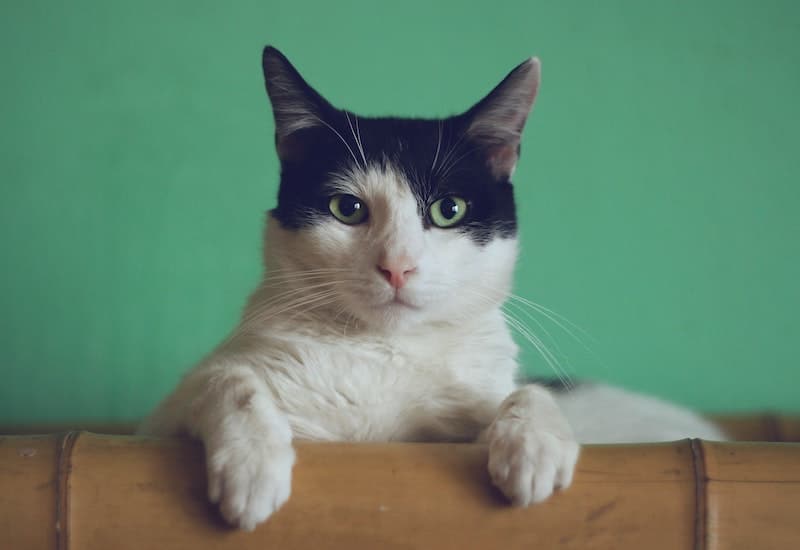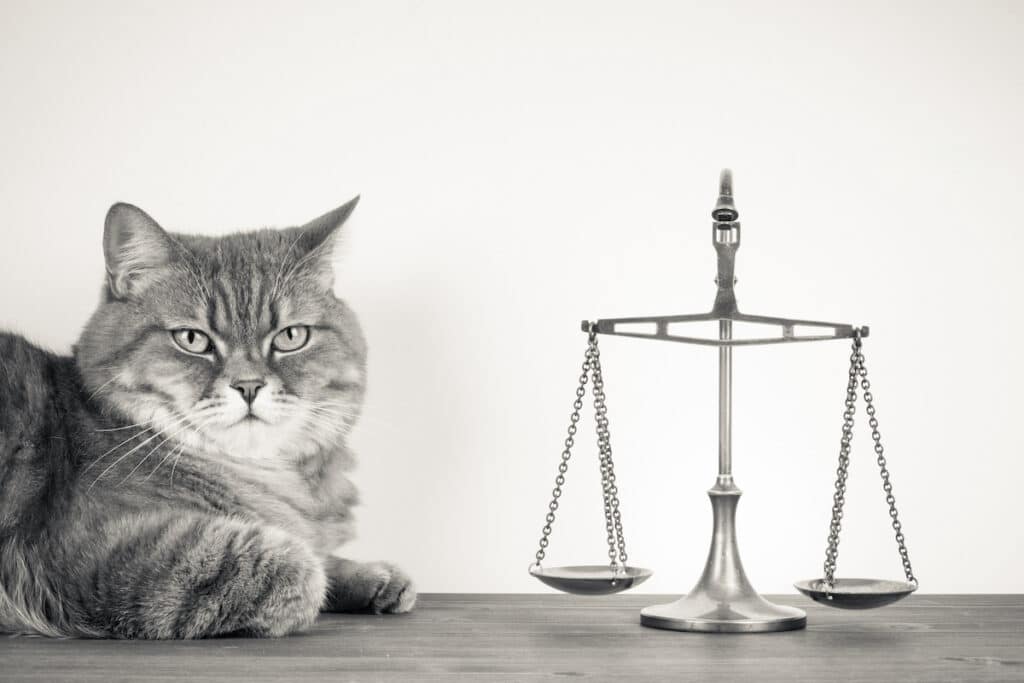Do cats judge you? It’s a question that comes up frequently among cat owners. After all, cats can be very opinionated creatures, and it’s only natural to wonder if they’re forming opinions about their humans. The answer may surprise you.
Do Cats Understand Human Behavior?
The idea that cats are judging us is based on the assumption that cats can understand human behavior. While it’s true that cats can learn to recognize certain patterns or cues, the jury is still out on whether cats can truly understand what we are doing.
Studies have shown that cats can recognize their owners’ faces and voices, understand human gestures and emotions, and even bond with their owners.
Cats have an incredible sense of hearing and can pick up on subtle nuances in their owner’s voices. Studies have shown that cats can recognize their owners’ voices and can differentiate between their owners’ voices and strangers. Cats can also recognize their owners’ facial expressions and body language, which helps them understand what their owners are trying to communicate.
Cats also have the ability to bond with their owners. Cats can form strong attachments to their owners and can recognize when their owners are feeling stressed or anxious. Cats often try to provide comfort to their owners by cuddling, purring, or simply being near them. It’s clear that cats understand and respond to their owners’ emotions and behavior.

Do Cats React to Our Actions?
Cats may not be able to communicate with us in the same way that a dog can, but they do respond to our actions. Cats are very sensitive creatures and have a keen sense of their environment. They are able to pick up on subtle cues that we may not even be aware of. For example, a cat may respond differently to a loud voice than a quiet one. They may also respond to gestures, such as petting them in a certain way or scratching them in a certain spot.
Cats also tend to respond to our emotions. If we are feeling stressed or anxious, our cats may also pick up on these signals and become more agitated. Conversely, if we are feeling relaxed and contented, our cats may also respond by becoming more friendly and relaxed.
Finally, cats also respond to our positive reinforcement. If we give them treats or attention when they are behaving well, they will likely associate this behavior with good things and may be more likely to behave in that way in the future.
While cats do react to our actions, it’s likely that only part of their reaction is based on their judgement of us. It’s probably more likely a mix of instinct and judgement of their human.
Do Cats Have Preconceived Ideas About Humans?
It’s also possible that cats may form opinions about us based on previous experiences. For example, if a cat has had bad experiences with a certain type of person, they may be wary of that type of person in the future.
However, this doesn’t necessarily mean the cat is judging us. They may just be reacting to experiences they’ve had in the past.
Can Cats Tell if We’re Good or Bad?
The idea that cats can tell if we’re good or bad people is also popular. While cats may be able to recognize certain behaviors, it’s not clear whether they can actually make a judgment about our character.
When it comes to gauging a person’s character, cats may be even better than dogs. Studies have found that cats may be able to tell if someone is good or bad based on their body language, facial expressions, and even the tone of their voice. It’s believed that cats are drawn to people who are kind, gentle, and loving because they’re more likely to offer them affection and care. On the other hand, cats may shy away from those who are mean, aggressive, or hostile. Cats may also be able to sense if someone is stressed, sad, or anxious, and may act accordingly.
Cats are highly intuitive animals, so if you’re feeling guilty about something, your cat may be able to tell. Cats may also be able to sense if you’re feeling down, and may come over to comfort you. Cats are incredibly perceptive, so if you’re trying to hide your true feelings, it may not be possible.
Cats may be able to recognize when we’re being kind or unkind, but it’s not clear whether they can make a judgment about our character based on this information.

Do Cats Respect Us?
One way cats show respect is through purring. Purring is believed to be a sign of contentment and pleasure, and cats often purr when around their owners. This could be seen as a sign of respect, as the cat is expressing their positive feelings towards you.
Another way cats show respect is by following their owners around the house. This could be seen as the cat trying to show their loyalty and admiration for their owner.
Finally, cats may show respect by cuddling up with their owners. Cats often choose to cuddle up with their owners as a way of feeling safe and secure. This is a sign of trust and respect, as the cat is placing their trust in you.
Overall, it appears that cats do respect us in their own unique way. With the right amount of love and care, cats can be loyal and loving companions.
So, do Cats Judge You?
Cats may not be able to speak, but they are actually quite perceptive and can form opinions about their owners, especially when it comes to behavior. Cats are known to be excellent observers, and they can pick up on subtle cues and body language. They can also remember people, places, and objects, as well as their individual likes and dislikes.
Cats can even judge their owners’ behavior and attitude. If you are a loving and attentive pet parent, your cat may be more likely to show affection and loyalty to you. Conversely, if you are too harsh or neglectful, your cat may show signs of displeasure, such as hissing or growling.
Cats can also express their preferences for certain activities or behaviors. For example, if you regularly give your cat treats for good behavior or cuddle him after a long day, he may come to expect those treats or cuddles as a reward.
Ultimately, cats are not judgmental creatures, but they do have their own preferences and opinions. It is important to remember that cats are sentient beings, and they deserve to be treated with respect and kindness. If you are a responsible and loving cat parent, your cat is likely to appreciate it and show you with affection and loyalty.
Conclusion: Do Cats Judge You?
Ultimately, the answer to the question “Do cats judge you?” is not clear-cut. Cats may be able to recognize certain patterns and cues, and even react to our emotions. But it’s not clear whether they can truly understand human behavior or make judgments about our character.
FAQs: Do Cats Judge You?
It turns out, cats may have an idea of what they think humans are. Research has shown that cats recognize their owners and may even think of them as a type of parent figure. They may even think of us as a source of food, entertainment, and comfort.
In addition to recognizing us as their owners, cats may also recognize us as part of their social group. Studies have found that cats can develop relationships with humans just as they would with other cats. They may even show signs of affection towards us such as head butting our hands or purring when we pet them.
Cats also seem to understand when humans are trying to communicate with them. Studies have shown that cats are able to recognize different tones of voice and associate them with specific behaviors. This suggests that cats may think of us as a type of friend or companion that understands their needs and wants.
The answer is yes, cats can be judgmental. When it comes to their owners, cats can quickly form opinions and make their feelings known. They may decide they like or dislike certain people or activities, and they may express that through their behavior. They may also judge food, clothing, and other items based on their own preferences.
Cats also have the ability to judge whether or not they’re being treated well. If a cat feels neglected or mistreated, they may act out in ways such as not using the litter box or avoiding their owner. On the other hand, if a cat is receiving attention, love, and proper care, they’ll likely be more content and relaxed.
In addition, cats may also judge their environment. If a cat feels unsafe or uncomfortable in their surroundings, they may act out in a variety of ways. Cats may even display signs of aggression if they feel threatened.
The answer is yes and no. Cats don’t necessarily recognize the concept of “ownership” the way that humans do, but they do recognize us as their caregivers. They rely on us for food, shelter, and companionship, so they instinctively form an attachment to us. Cats also recognize their human caregivers as the source of safety and security in their lives.
For one thing, cats are natural hunters, so they may be thinking about ways to stalk, pounce, and catch their next meal. They may also be thinking about ways to keep themselves safe from any potential predators.
Cats are also incredibly curious creatures. They may be thinking about exploring new places, playing with their favorite toys, or basically just anything that strikes their interest.
Finally, cats are social animals, so they may be thinking about ways to bond with their family members and other cats in the neighborhood. They may also be daydreaming about getting extra pets, cuddles, or treats.
When it comes to cats, one of the most reliable signs of trust is when they take the initiative to sleep next to you. Cats are creatures of habit, and if they are comfortable enough around you to sleep next to you, then it’s safe to assume that they trust you. Sleeping with a companion is a display of vulnerability, which implies that the cat feels safe around you.
If your cat chooses to sleep next to you, it could be that they are seeking out your warmth and comfort. It’s also possible that they enjoy being close to you to feel secure, or that they simply enjoy your company.
On the other hand, there are some cats who are content to sleep in their own beds or even on the floor—and that’s totally normal. It’s important to remember that cats are individuals and that some may feel more comfortable sleeping alone.














